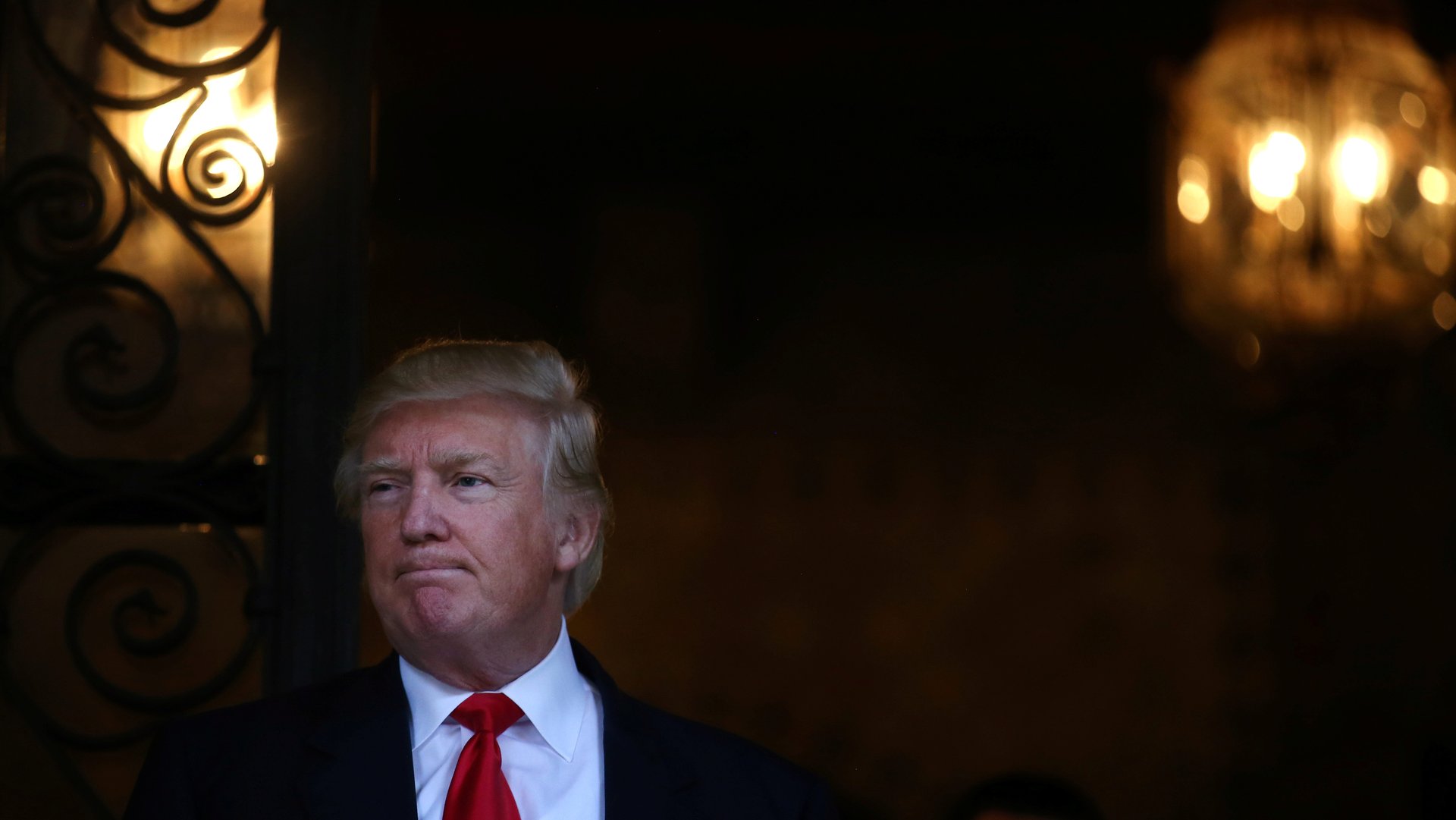President Trump has failed to learn a crucial lesson—you don’t cross the US intelligence community
Washington is full of people (men, mostly) who have lived and worked under numerous and vastly different administrations. They are the type of political junkies who can spout intricate details of former president Jimmy Carter’s cabinet, or remember the last time a president missed the White House correspondents’ dinner (Ronald Reagan in 1981, because he was recovering from being shot).


Washington is full of people (men, mostly) who have lived and worked under numerous and vastly different administrations. They are the type of political junkies who can spout intricate details of former president Jimmy Carter’s cabinet, or remember the last time a president missed the White House correspondents’ dinner (Ronald Reagan in 1981, because he was recovering from being shot).
And nearly all of them will tell you the same thing: no matter how powerful you are politically, you do not mess with the US intelligence community.
But that’s a rule that Donald Trump has broken repeatedly, as both a presidential candidate and a US president—despite the apparent consequences.
Days after Trump mocked the intelligence community for delaying a transition briefing on Russian hacking during the 2016 election, word got out that US intelligence officials had briefed Trump and outgoing US president Barack Obama on a report that the Russians could have compromising information on Trump—with the still-unsubstantiated allegations listed in a dossier that came to be known as the “golden showers” reports.
The second full week of his presidency was rife with leaks of unusually detailed descriptions about his very first, and very flawed, military operation, a Jan. 29 raid in Yemen on a suspected Al Qaeda hideout.
“Almost everything went wrong,” a senior military official told NBC, including the death of a Navy SEAL and of an eight-year-old girl who died two hours after being shot in the neck. “Risky from the start and costly in the end,” The New York Times said, in an article that raised the prospect that the attack had not been properly vetted by the Pentagon. “Typically, the president’s advisers lay out the risks, but Pentagon officials declined to characterize any discussions with Mr. Trump,” the paper said, citing unnamed US officials.
Among the dead were over 20 civilians, a local nonprofit reported—including 10 children and a newborn who died after his mother was “shot in the stomach during the raid and subsequently gave birth to an injured baby boy.” Obama had decided against the attack while in office, most reports noted.
The drumbeat of reports suggesting the Trump White House was responsible for what went wrong was so strong that Vox published the rare pro-Trump essay, saying there was “no evidence” that it was Trump’s fault.
Trump has previously derided the intelligence community as “Nazis,” and threatened to get his own intelligence experts. The day before the raid, he elevated the self-styled “Darth Vader,” his shadowy advisor Steve Bannon, to the National Security Council, demoting the director of national intelligence in the process, to the consternation of the intelligence community.
Obama’s drone strikes killed 117 civilians in his eight years as president, but rarely were their errors dissected by unnamed US officials with the ferocity and detail, or the pointed blame, of Trump’s Yemen attack.
With Trump doing little to endear himself to the intelligence community, the steady drip of detailed finger-pointing could continue.
What’s unclear, though, is if this is any way to mess with Trump’s popularity. As a candidate, he himself once said: “I could stand in the middle of Fifth Avenue and shoot somebody and I wouldn’t lose voters.”
In that case, he is unlikely to lose many fans over allegations that he had Russian prostitutes defile a Moscow hotel bed the Obamas once slept in or reports that a poorly executed military raid resulted in the deaths of children in a far-off, Muslim-majority country. No doubt in the eyes of some supporters, allegations such as these only make him look stronger.